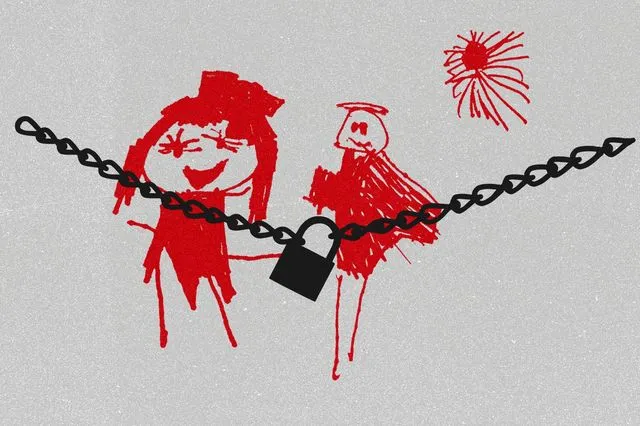Non-existent mental-health system for teenagers – Shocking findings
Διαβάζεται σε 5'
Greece’s mental-health system for adolescents is in deep crisis, as highlighted by data from a recent intervention by the Greek Ombudsman.
- 27 Νοεμβρίου 2025 11:57
Grim conditions are reported in the hospitalization of minors at psychiatric hospitals across Greece, according to findings from an intervention by the Greek Ombudsman
As part of journalistic research, NEWS 24/7 obtained a document from the Independent Authority, according to which the Ombudsman conducted an unannounced on-site inspection at the Attica Psychiatric Hospital “Dromokaitio” and the Attica Psychiatric Hospital in Dafni on February 2, 2024.
The conclusions were more than discouraging.
Between January 1, 2020 and January 31, 2024, a total of 135 minors aged 14–18 were hospitalized at Dromokaitio, despite the fact that the hospitalization of minors in adult psychiatric facilities is not permitted.
The inspection revealed that minors were continuously exposed to risks due to their coexistence with adult patients. According to the report, incidents were recorded in which minors were exposed to violent behaviors or even sexual acts by other patients, underscoring the extreme danger of the situation.
In many cases, restraint measures were applied to minors without following the required protocols or recommendations for the use of restrictive measures during psychiatric hospitalization – this occurred due to severe overload with serious cases and understaffing in psychiatric wards. Put bluntly, children were being “tied down” because there were no alternative options available.
Meanwhile, adult psychiatrists working in these hospitals stated that they face serious difficulties in prescribing medication for minors, as they lack both the specialized training required and sufficient institutional support.
Overall, the situation was deemed profoundly problematic, with minors not receiving proper treatment and instead being placed in environments that could inflict additional physical and psychological harm.
According to the Director of Medical Services at the Attica Psychiatric Hospital, minors are hospitalized “out of necessity” following a prosecutor’s order. This framework is considered unsuitable, given that the patients’ age requires a different therapeutic approach.
Combined with the sharp increase in prosecutorial orders for psychiatric assessment and hospitalization in recent years, psychiatric hospitals have been pushed into a highly volatile situation.
There are also cases in which parents request the hospitalization of their children—without a prosecutor’s order—because they are unable to manage their behavior. As a result, medical and nursing staff often find themselves facing tragic impasses.
A single child psychiatrist for the whole of Crete
According to the Ombudsman, even psychiatric hospitalization in specialized child and adolescent units in regional hospitals faces severe challenges.
A stark example comes from PΑGΝI in Heraklion. Initially, three of the hospital’s five child psychiatrists resigned, leaving only two to cover all needs from September 2022 onward.
Subsequently, due to “dramatic understaffing,” the functioning of PAGNI’s child psychiatry clinic was altered, with inpatient care periodically suspended and only partial coverage of on-call shifts. Hospitalization became impossible after yet another child psychiatrist resigned. Today, the clinic operates with just one child psychiatrist, supported by two adult psychiatrists. That one child psychiatrist is the only one employed by the National Health System across the entire island of Crete.
Sismanogleio is left carrying the full burden for 16–18-year-old inpatients
When the document was sent to the Ministry of Health on June 30, 2025, the main facility operating in Athens for adolescent hospitalization was the Adolescent Inpatient Unit at Sismanogleio Hospital, with a capacity of 10 beds. This clinic serves minors with severe psychopathology from Attica and, to a large extent, from the rest of Central Greece, the Peloponnese, Epirus, and the Aegean islands—covering the critical age group of 16–18.
At the same time, according to information available to the Ombudsman, there is a severe staffing shortage—medical, nursing, other necessary specialties, and administrative staff—across all existing child and adolescent psychiatric units, particularly in terms of permanent personnel.
In the same extensive intervention, the Ombudsman notes that he has repeatedly identified serious understaffing in nearly all public community mental-health structures for children and adolescents, as well as their absence from many regions of the country—precisely the services responsible for prevention and early management of risks.
As a result, minors and their parents are forced to travel from areas without services to those where such services exist. Delays in child evaluations—often crucial for their smooth functioning at school—should be considered a given.
A particularly important issue affecting thousands of families must be highlighted: the Ombudsman notes the complete absence of public provisions for therapeutic interventions for children with neurodevelopmental disorders who require specialized therapies (occupational therapy, speech therapy, etc.).
Public structures are limited to diagnosis only. For specialized therapies, parents are referred to private centers, with only partial reimbursement from the National Organization for Healthcare Services Provision (EOPYY). Many families are therefore forced to pay substantial amounts out of pocket for essential treatments critical to their children’s development.
In conclusion, in his 20-page letter, the Ombudsman refers to the overall absence of a “child-centered approach,” stemming from the lack of a comprehensive child-protection policy and clear protocols for all stages of a child’s interaction with the mental-health system.







































